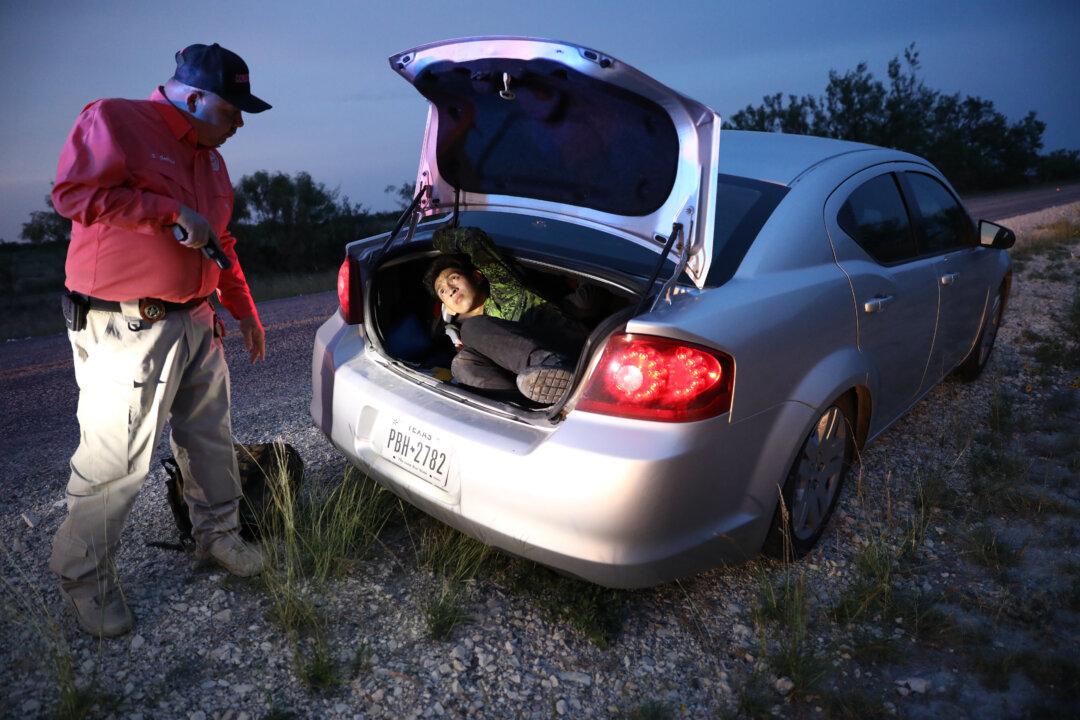UVALDE, Texas—A smuggler traveling at 140 mph races through town and crashes through a building in Uvalde, Texas. Another one drives onto a softball field in Crystal City, with children playing nearby.
In Del Rio, eight illegal aliens die after crashing head-on into another vehicle during a pursuit. Further east, in Lavaca County, a pickup truck carrying 18 to 20 illegal aliens crashes into a tree and bursts into flames.





